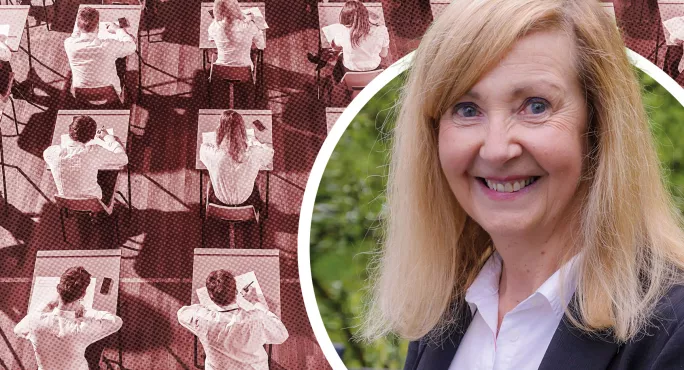The author of ScotlandŌĆÖs independent review of assessment and qualifications has criticised the Scottish governmentŌĆÖs reluctance to change the exam-heavy regime in upper secondary, warning that the system ŌĆ£is not justŌĆØ and ŌĆ£does not work for many learnersŌĆØ.
Professor Louise Hayward made her remarks two years on from the publication of the that she led.
The review, published in June 2023, recommended scrapping exams below Higher level and introducing a Scottish Diploma of Achievement in a bid to build a more rounded picture of studentsŌĆÖ strengths and talents.
However, the government took a year to respond to the recommendations and - with this yearŌĆÖs crop of students having just completed another five week-long exam diet - there is little sign of change.
Assessment in Scotland ŌĆśhas improvedŌĆÖ
Speaking at the EIS teaching unionŌĆÖs annual general meeting in Aviemore last week, Professor Hayward said that ŌĆ£without doubt, assessment has improvedŌĆØ - it is, she said, ŌĆ£far less a question of judgement and categorisation and there is far greater focus on progression and learningŌĆØ.
However, Scottish students remained ŌĆ£amongst the most examined in the worldŌĆØ and achieving parity of esteem between academic and vocational qualifications - which was an aspiration when she started teaching - was still being talked about today, she said.
National qualifications - National 5s, Highers and Advanced Highers - were ŌĆ£still often seen as the preferred qualificationŌĆØ. Paraphrasing a famous quote from George OrwellŌĆÖs Animal Farm, Professor Hayward said this sent ŌĆ£a clear message to learnersŌĆØ that ŌĆ£all learners matterŌĆ”but some matter more than othersŌĆØ.
ŌĆ£That is not a just position,ŌĆØ she added.
Scotland, she said, was ŌĆ£wary of moving even slightly from a past we know is not justŌĆØ and that does not align well with the aspirations of Curriculum for Excellence.
She suggested that the reluctance might come from ŌĆ£a fear that change might make things worseŌĆØ.
Scotland had ŌĆ£not always managed the process of change wellŌĆØ, Professor Hayward said. There were some exceptions - the introduction of Standard Grade in the 1980s had ŌĆ£much to commend itŌĆØ and Assessment is for Learning (in the early 1990s) ŌĆ£also had many positive featuresŌĆØ - but there was a tendency to get implementation wrong.
Professor Hayward said: ŌĆ£I honestly believe that no one sets out to develop good policy and then mess it up when ideas are put into practice in schools and classrooms. But when you look back at some of the models of change we have used, you might believe that they had been designed by someone with a real sense of humour.ŌĆØ
When it came to the implementation of Curriculum for Excellence, the origins of which go back more than 20 years, teachers had been drowned in paper when what they needed was time - ŌĆ£time to get to grips with ideas, to talk them through with others and think what they might mean for their school, their classroom, their learnersŌĆØ.
In the past, Professor Hayward said, change had also been forced on the profession irrespective of its quality, with teachers told ŌĆ£just get on with itŌĆØ.
ŌĆśReal change means everyone changesŌĆÖ
But ŌĆ£real change means everyone changesŌĆØ, she said - everyone has to be involved, the educational purpose of policy has to be clear, and all parts of the system have to align ŌĆØlike an old-fashioned watchŌĆØ.
Professor Hayward concluded: ŌĆ£Things are better in education. We have a clearer idea of what will make things better and we know more than we did about how to get there.ŌĆØ
She praised teachers for ŌĆ£doing more than might reasonably be asked of them to tackle some of societies biggest problemsŌĆØ - from poverty to the rise of AI and the blurring of fact and fiction - and urged the government to ŌĆ£truly value every person and reflect that in its education systemŌĆØ.
You can now get the UKŌĆÖs most-trusted source of education news in a mobile app. Get Tes magazine on and on





